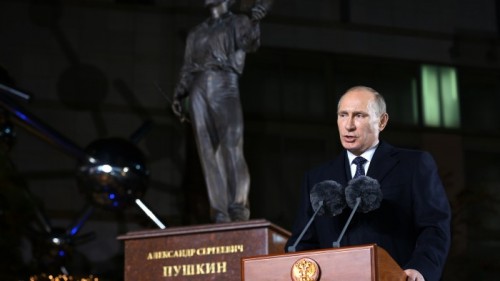
The Cambridge Election Podcast
From the University of Cambridge comes ELECTION, an insightful politics podcast; asking the questions that no one else is in the run-up to the British General Election with the most interesting people inside and outside the political arena. Here below are the latest podcasts.
#9 – Simon Szreter on conspiracy theories, trust in politics & solutions
It is said that trust in politics is at an all-time low. Our politicians are seen as out of touch and out to fill their own pockets. But when does mistrust become something more profound? This week we discuss this phenomenon in its most extreme form: conspiracy theories. What conspiracy theories do the British public believe? How commonplace are they, and how have they spread? Are people really so wrong to believe that the world is run by a secret elite? We interview a team of Cambridge researchers for answers. Then David turns to Professor Simon Szreter – social historian and founder of ‘History & Policy’ – to discuss how academics are trying to find ways of restoring the public’s faith in politics, and bridge the gap between the politicians’ narrow view of the world and how the voters see it. The team also discuss the television debates, politicians’ use (and abuse) of facts and figures, Tony Blair, and UKIP’s strategy for electoral success.

All for English devolution – but what about English democracy?
English devolution has emerged as a prominent feature of the 2015 general election campaign for a number of reasons. One is the ongoing process of devolution that has been taking place across the UK, with the formation of the assemblies for Northern Ireland and Wales, and the Scottish parliament. Another is the aftershock of the 2014 Scottish independence referendum. Throughout this time, England has also solidified as a distinct national political community.
Research indicates that over the past decade or so we have witnessed the progressive “Anglicisation” of the Westminster-based unionist parties. This means that Labour, the Conservatives, and the Liberal Democrats have all become more focused on England, in their political outlook.
But up until now, these parties have sought to avoid the complications and risks of large-scale internal organisational reform in England. They have lacked the appropriate party structures, leadership or explicit policy agendas to properly engage with the complex set of “English Questions”, which have emerged in a post-devolution UK.

Putin’s nationalism problem
The crisis in Ukraine has produced a new narrative about Vladimir Putin’s leadership. In contrast to the stated modernising goals of his first two presidencies – the achievement of greater state efficacy and the improvement of living standards and prosperity for ordinary Russian citizens – Putin has been recast as the saviour of the Russian nation. This new narrative includes a mission to protect the citizens of the ‘Russian World’ that live beyond the borders of the Russian Federation. In some analysis, this has led to parallels with Slobodan Milosevic’s political journey in the former Yugoslavia (Whitmore, 2014).
Yet, while Vladimir Putin has shown strong patriotic instincts throughout his political career, he is not a natural nationalist. In an article titled ‘Russia: The Ethnicity Issue,’ which Putin published in January 2012 ahead of the presidential election, his ambiguous support for ethnically-based nationalism was apparent. He warned about the dangers that ethnic chauvinism posed to the territorial integrity of the Russian state: ‘I am convinced that the attempts to preach the idea of a “national” or monoethnic Russian state contradict our thousand-year history,’ he averred, ‘this is a shortcut to destroying the Russian people and Russian statehood, and for that matter any viable, sovereign statehood on the planet’ (Nezavisimaya Gazeta, 2014). Moreover, his regime’s relationship with the nationalist leadership in eastern Ukraine, and their ideological backers in Russia, has not always been cordial during the Ukrainian conflict. Putin’s commitment to the creation of a new territory, ‘Novorossiya,’ which would lead to the breakup of Ukraine, has been questioned by nationalist ideologues and militia leaders throughout the crisis (Sonne, 2014).

Will a constitutional convention refound the British state?
If we are in a constitutional moment, it is time that ‘We the people’ have a right to settle what happens. A Constitutional Convention (CC) is one way to give the people this leading role. A CC is unlikely to refound the British state if it is set up to function as, in effect, an advisory council to the UK Parliament on a relatively narrow range of issues. The UK is in what the lawyer and political philosopher Bruce Ackerman would call a ‘constitutional moment’. There are, obviously, deep and urgent questions about the future of the Union and ‘devolution’. There are related questions about the second chamber of Parliament and the election itself is likely to raise again questions over the voting system. …

The general election and constitutional reform: A look at the manifestos
One of the central problems with studying the politics of constitutional change in the UK is that the public does not care about the constitution. Unsurprisingly, constitutional reform does not figure prominently in the party manifestos for the May general election. That does not mean that these documents tell us nothing at all: they show that parties stick with their old policies; that the Conservatives seem to avoid any explicit reference to the constitution; and that all political parties appear to be willing to use the constitution to their own advantage.
In this blog post, I distil some of the constitutional issues in the party manifestos of the three largest parties in Westminster in the last parliament: the Conservatives, Labour and the Liberal Democrats (if there’s time, I will do another post on the smaller parties’ proposals). I define ‘constitutional’ issues as distinct from ‘distributional’ ones, which involve reallocation of resources (and the regulation of behaviour). Constitutional issues are about how decisions are made, not about the outcomes themselves, and should be neutral between, say, more or less progressive (or conservative) substantive policies.

The Cambridge Election Podcast
From the University of Cambridge comes ELECTION, a weekly politics podcast; asking the questions that no one else is in the run-up to the British General Election with the most interesting people inside and outside the political arena. Here below are the eighth, ninth and tenth podcasts.
#8 – Robert Tombs on Britishness, Britain’s place in Europe & the NHS
What makes our politics uniquely ‘British’? Why is there no EnglishIndependence Party? How did the NHS become a sacred cow? And will Britannia ever rule the waves again? David puts these questions to Professor Robert Tombs – historian and author of a new epic history of England – to discover the impact of culture and foreign affairs on British political life. The team also review David Cameronand Ed Miliband’s favourite books, the pros and cons of the fixed-term Parliament, the neglected but extraordinary Nigerian election, and what to expect between now and polling day.

Against Ad Hocery: UK devolution and the need for consultation, consensus and consideration
Last month the Political and Constitutional Reforms Committee published a report on the future of devolution, in the wake of the Scottish Referendum. Here Dave Richards and Martin Smith pick the report apart and look at the implications for devolution in the UK. The newly published report on the Future of Devolution after the Scottish Referendum is a worthy attempt to bring some order to an often confusing and conflicting debate concerning where devolution goes after the election. Strikingly, the Committee notes that since the September 2014 Scottish Independence Referendum, rapid developments have been made in bilateral ways which pay little attention to the overall nature of the Union. What the Committee has identified is the extent to which devolution is happening in …

Forecasting the 2015 British general election: three weeks out
Forecasters, academic experts, journalists, pollsters and the betting markets have long been forecasting a seriously hung parliament with both major parties not only short of the 326 seats required for an overall majority but even forecast to get less than 300 seats. Meanwhile, an SNP landslide is expected in Scotland which would be hugely damaging for Labour and have major implications for the government formation process. If the forecasters and betting markets are right in their central forecasts then Con+LD+DUP combined will be short of a majority and so a Labour led government should form if they can secure the support of the SNP and probably others, including the Liberal Democrats, will be needed too: a potentially messy and unstable situation but also one where there is sufficient similarity in ideological perspective for policy agreement on plenty of issues.
But there is uncertainty associated with all the forecasts and some forecasters are trying to estimate the extent of that uncertainty, which in turn can be used to calculate probabilities of particular events (hung parliament, largest party, etc.)









